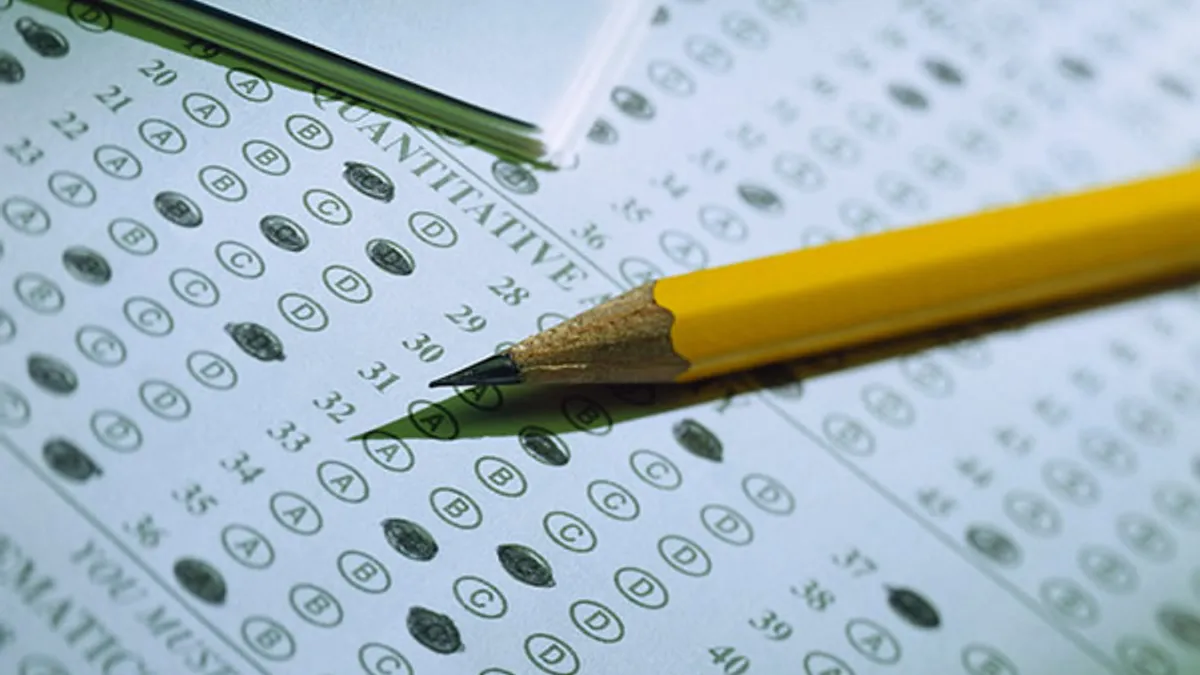Dive Brief:
- With exams playing a vital role in not just the measurement of students, but of teachers and schools as a whole, assessment expert Dave Nelson shares eight suggestions for effective exams with eSchool News.
- Nelson suggests that assessments should demonstrate good decision-making in learning design, be aligned with learning targets, not confuse difficulty in interacting with questions for rigor, and utilize blueprinting to guarantee that standards and subject mastery are covered.
- Additionally, Nelson writes that assessments must have a clearly defined purpose, should include an item sample size relative to how granular the related learning targets are, should be guided by student data, and should take advantage of post-assessment analysis to adjust any problematic items or improve focus on specific learning targets.
Dive Insight:
Along with Nelson's suggestions, it's worth bearing in mind that the rising demand for more creative and critical thinking in recent years has led to a rethinking of how assessment is approached. Much of the standardized testing culture of the past few decades — particularly in the wake of No Child Left Behind — created a school environment where many students were "taught to the test" at the expense of other areas of learning, due largely to stringent accountability standards attached to test results. Under the Every Student Succeeds Act, however, states have been given more leeway on the amount of assessment that takes place and how it's approached.
Some schools are experimenting with turning testing into a collaborative experience, letting students work together on problems before they take an exam, and teachers have reported increases in understanding, mindset and performance as a result. Some have even explored game-based models meant to engage students in critical and creative thinking, often alongside simulations of real-world scenarios.
Regardless of format, experts like measurement statistician John Hattie say assessment should do a better job of measuring teachers' impact for the purpose of recognizing and rewarding their professional expertise — a detail he noted in an Education Dive interview last year is often overlooked in the U.S. One thing is certainly clear: From ESSA to the outcry via testing opt-outs by parents, the way assessment is addressed in K-12 and beyond is due for an overhaul in the coming years.







 Dive Awards
Dive Awards






